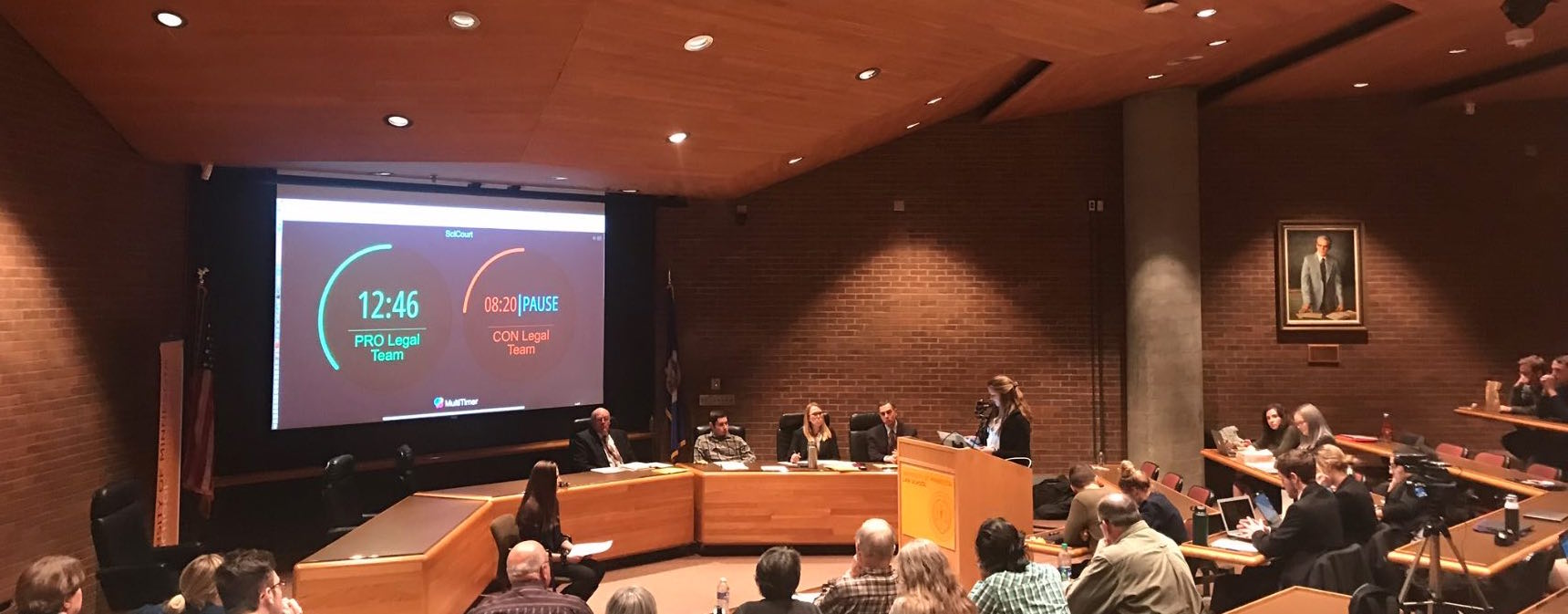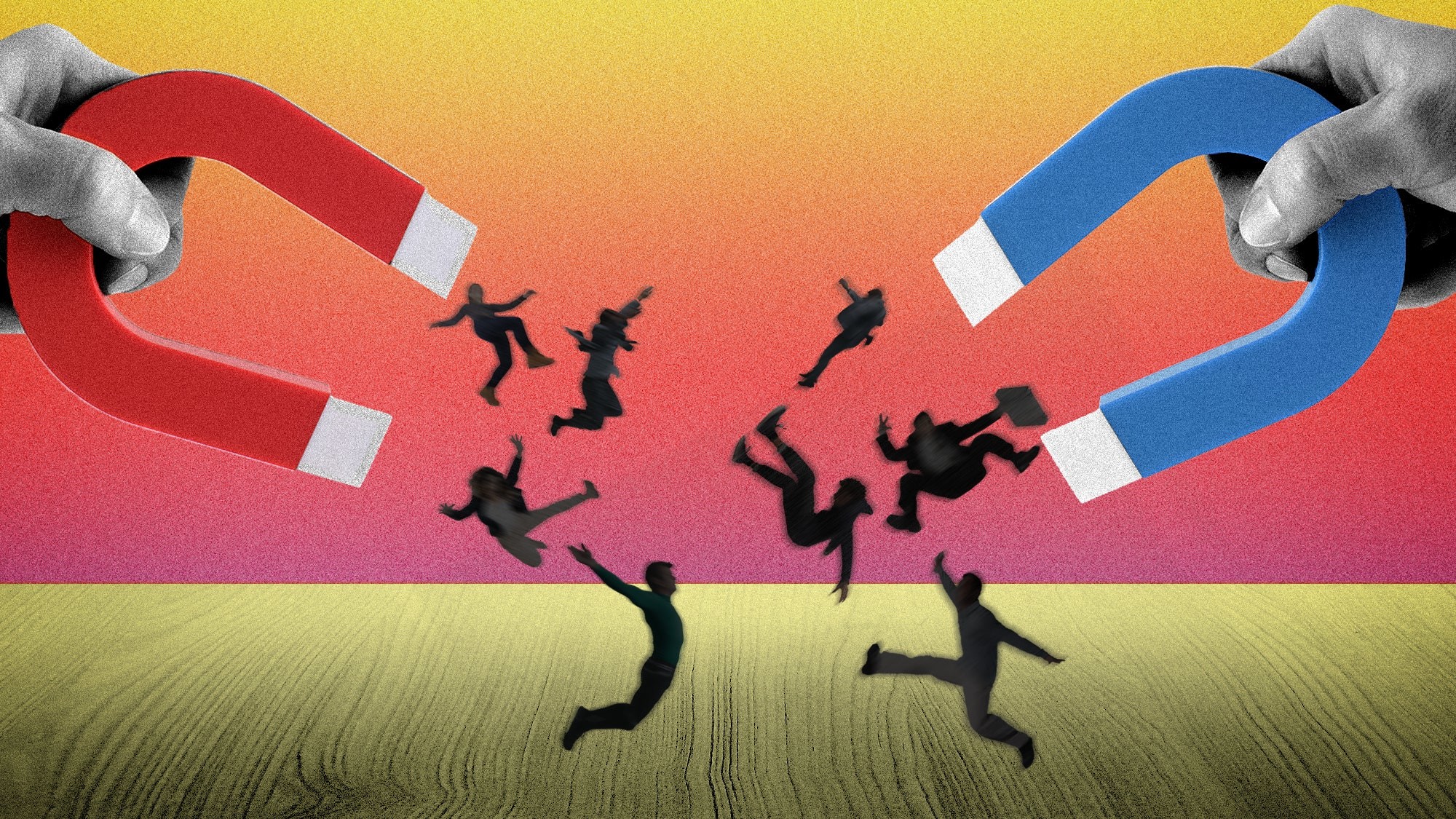
Welcome to Science Court!
Science Court is a project designed to combat polarization in American society and strengthen democracy. It is run as an interdisciplinary course in the University of Minnesota Honors Program involving students from across the university. The students select a controversial issue and spend an entire semester studying it in depth to determine the facts (based on sound scientific research) and then argue it in a mock trial in front of a jury of citizens with a mix of views and backgrounds. The public is engaged through compelling audio, video and online content generated by the students about the preparations, trial and verdict. The trial is free and open to the public.



The 2022 Science Court case is
Grading practices at the University of Minnesota can lead to bias, stress, and disincentivize learning, new innovative student assessment methods should be adopted
This year's Science Court is in partnership with the University of Minnesota (UMN) Student Senate. This topic is inspired by a Student Senate resolution, approved on December 3, 2020, requesting an extension of the UMN policy allowing students to opt for S/N grading (Satisfactory/Not satisfactory) in any course due to the COVID-19 pandemic. The Science Court case generalizes this to a full reevaluation of how students are assessed at UMN. This is timely considering increasing concerns regarding student mental health, the increased emphasis on student diversity and equity, changes in how students learn due to the technological environment, the increase in scholastic dishonesty facilitated by the internet and social media, and the rise of remote learning.
Science Court will consider student assessment holistically exploring what is known from scientific research in domains of knowledge informing this topic and propose two main strategies, Refine versus Reform, for the Student Senate to consider.
- The "Reform" (pro) approach proposes to replace the current UMN system with alternative methods for grading and student assessment proposed in the literature and tested at other institutions.
- The “Refine” (con) approach will argue to largely retain the current UMN grading system with modifications aimed at addressing its limitations based on research findings.
Stay tuned or follow us on twitter or join the Science Court mailing list to be kept informed.
LATEST BLOG POSTS
SciCourt looks into marketing voluntary service programs

Photo by Joel Muniz on Unsplash
The Science Court legal team separated this week into a pro and con team. The pro team will move forward with constructing a plan for mandatory service, while the con team will develop a plan for a national voluntary service program.
Science Court legal advisor and judge Bill McGinnis pressed students in class on Tuesday to consider administrative and organizational aspects of a national voluntary service program. "We have to have a personnel administrative structure that protects the people in the program," he said. This could include details like how to prevent sexual harassment and keep volunteers safe while they're in the field.
A con argument emerges as SciCourt continues research

Photo Illustration by C.J. Robinson
In this week’s class, Professor Ellad Tadmor discussed with SciCourt notes from his conversation with Jim Hartung, a systems engineer and political reform advocate. Hartung provided ideas on how to organize national service programs and approaches to decreasing polarization in the United States. The science team will consider Hartung’s insights to craft effective pro and con proposals that fight polarization.
Bill McGinnis, the legal team advisor and judge for the case, thinks that misinformation is one of the leading causes of polarization in the U.S. To combat this issue, McGinnis said he believes we must improve how Americans exchange and interpret information. With the absence of misinformation, he speculated biases would turn to a minimum and citizens would better understand the arguments from both sides.
Depolarizing America: Episode 1
The University of Minnesota Science Court students will research and debate this semester whether mandatory service programs could work to create more political and racial harmony in the United States.
In this first episode of Depolarizing America, hosted by Matt Simonson, SciCourt explores historic efforts to combat polarization both inside and outside the United States. Hannah Ihekoronye and Jess Jurcek interview two members of the legal team, Andrew Bremner and Nishant Satpathy, to discuss their current research regarding U.S. government programs post-WWII as well as foreign countries' programs and policies. What programs have worked and what have not?
You can also follow along by subscribing to the Science Court Podcast on Apple Podcasts and Spotify.